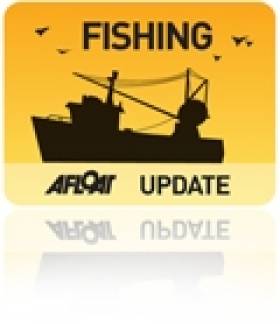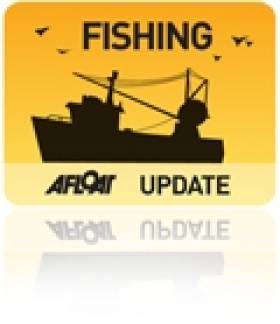Displaying items by tag: reform
Maritime & Port Industry Welcome IMCO Vote on UCC Reform to Urge for a Further Secure, Smart, Safe Competitive Customs Union
The European Parliament’s Internal Market Committee (IMCO) has today adopted its report on the reform of the Union Customs Code (UCC).
This core economic legislation determines the efficiency, resilience and competitiveness of the EU’s external border for trade. More than ever getting that right is vital for the EU’s businesses and citizens. Ninety percent of the EU’s external trade relies on shipping, making it vital that the UCC is well adapted to this strategic sector. The UCC needs to facilitate maritime transport, including by enabling efficient goods storage in ports, thus enabling the seamless connection of maritime transport to hinterland logistics chains.
European shippers, ports, terminal operators, ship agents and shipping lines, are grateful for the important progress made by the IMCO Committee and the attention given to the maritime and port sector’s concerns. We urge the European Commission and Council to take on board these views and to work together with industry to address other outstanding issues to better support Europe’s maritime trade.
The position of MEPs to oppose the proposed revision of current rules for the temporary storage of goods in EU ports is particularly welcome. The EC proposal to slash the maximum duration of temporary storage from 90 days to 3 days, is impractical for shipping, imposing significant administrative burdens and reducing the efficiency of EU ports to handle, import, export and transhipment cargo. The IMCO amendments would maintain a well-adapted current legal framework that remains fit for purpose.
However, other issues still need to be addressed. Major new IT systems and entry processes are to be launched this year for shipping, including the transformational cargo security system, ICS 2. For as long as these new processes and IT systems remain in operation the existing legal basis on which preparations, investments and their functioning depend, must be legally maintained. This was missing from the EC proposal.
The Committee’s amendments partially solve the problem by proposing to extend existing rules and data requirements related to UCC ‘electronic systems’. However, legal certainty for processes such as cargo security go well beyond the electronic systems. The legal obligations on entities and authorities must also be legally maintained too. This should be urgently remedied.
As Maritime and Port Industry Stakeholders, we welcome the overall direction of the UCC reform towards a more harmonised customs union, reducing economic drag on Europe’s maritime commerce. The proposed EU Customs Data Hub, the EU Maritime Single Window Environment and the Customs Single Window must all be seamlessly integrated to deliver benefits. These points are critical for EU importers, exporters, ports, terminals, agents and shipping lines alongside a legally certain transition and a customs code that is well adapted to Europe’s critical maritime trade.
We stand ready to find solutions and support the efforts of the EC, MEPs and Member States to establish the smart, safe, and competitive Customs Union that the EU, its citizens and businesses need.
Fish Discards Should End 'Within Six Years' Says Coveney
#CFP - The deal reached between EU fisheries ministers this morning on reform of the Common Fisheries Policy (CFP) should bring an end to the practice of fish discards within the next six years, according to Ireland's Marine Minister.
As reported earlier today on Afloat.ie, Minister Simon Coveney emerged from 36 hours of talks in Brussels confident that a far-reaching reform on fisheries policy had been reached.
RTÉ News reports that the compromise deal will see a 93% ban on discards take immediate effect, phasing towards a full ban by 2019, with special allowances made in certain cases where sustainability of fish stocks allows.
Minister Coveney, as president of the EU Council of Fisheries Ministers during Ireland's EU presidency, will submit the agreed reforms to the European Parliament - which has previously been steadfast in its demands for a complete ban on fish discards to halt the depletion of fish stocks in European waters.
As previously reported on Afloat.ie, this week's discussions on fisheries reform in Brussels have been described as a "once-in-a-decade opportunity" to end the wasteful practice of fish discards, which has seen as much as 50% of the catch in the North Sea is thrown back overboard dead.
#Fishing - Marine Minister Simon Coveney will present a revised comprehensive compromise Irish EU presidency text to the EU Council of Fisheries Ministers on Monday 13 May seeking a new mandate to re-enter final negotiations with the European Parliament on a reformed Common Fisheries Policy (CFP).
Minister Coveney said that these decisive negotiations for agreeing a comprehensive reform of the CFP in Brussels on 13-14 May are likely to be very difficult given the significance for the next decade of what may be decided at the meeting.
“An enormous amount of work has gone into progressing the reform with council, commission and parliament during the Irish presidency," he said. "We now have an Irish presidency substantially revised set of compromise proposals which I believe give us a sound basis for positive engagement at council.
"Agreement at council on this presidency compromise package would support an ambitious reformed CFP which would secure a better future for our fish stocks and for the fishermen and coastal communities who depend on them."
The minister emphasised that there is a "very short window of opportunity for council and parliament to agree and deliver an effective reform of our fisheries policy and the Irish presidency is doing all it can to bring the institutions together to take this historic opportunity.
"I believe that if all parties focus on the critical elements of a reformed CFP, we can by working together reach realistic and substantial agreement through the co-decision process during the Irish presidency.”
Formal negotiations with the European Parliament have resulted in the Irish presidency drawing up a revised compromise 200-page legal text, which Minister Coveney, as president of the council, will use as the basis of negotiations with EU fisheries ministers.
The objective is to get political agreement on a final compromise package to enable conclusion of negotiations with the parliament and the commission on CFP reform during the Irish presidency, which concludes at the end of June.
Minister Coveney will also update EU ministerial colleagues on progress made to date by the Irish presidency during the ‘trilogue’ process where EU presidency (council), commission and parliament have been engaged in complex discussions on refining proposals for CFP reform.
Groups Urge Fisheries Ministers For Action On CFP
#CFPreform - RTÉ News reports that up to 200 conservation groups in Ireland and abroad have written to Marine Minister Simon Coveney and his EU counterparts urging his support for an end to overfishing in European waters by 2015.
The groups claim that mismanagement of EU fisheries under the Common Fisheries Policy has resulted in significant overfishing, particularly in the Mediterranean where as much as 80% of fish stocks are fished far beyond sustainable levels.
As previously reported on Afloat.ie, Minister Coveney - who is President of the European Council of Fisheries Ministers - welcomed a vote in February on a reform agenda for the CFP, which has been prioritised for delivery by the Irish EU presidency before the six-month term concludes at the end of June.
Important Fisheries Talks Continue in Brussels
#Fishing - Important talks on EU fisheries reform are continuing in Brussels after progress in Clonakilty recently, according to RTÉ News.
As previously reported on Afloat.ie, Marine Minister Simon Coveney welcomed a deal signed on Friday 18 January between the EU and Norway on allowable catches and quotas.
The agreement was seen as a positive move at the end of a week of talks at the National Seafood Centre, which followed a number of false starts due to difficulties in balancing mutual access and management arrangements.
Minister Coveney said that meetings taking place in Brussels today (28 January) are "about setting the scene for six months of intensive work" to produce dossiers for both the Common Fisheries Policy and the Common Agricultural Policy, for which he hopes definitive reforms can be achieved by this summer.
Both the CFP and CAP account for 40% of the European Union budget.
Back to the Future for European Fish Week
World Oceans Day on 8 June will see the launch European Fish Week 2011 at Trinity College's Long Room Hub.
The evening will comprise an exhibition and brief talk on this year's theme of 'Back to the Future' - reclaiming the past richness of Ireland's seas and fishing communities.
"By reminding ourselves of how living with the sea used to be, we can better understand the present extent of overfishing and how we can play a part in ending it through an effective reform of the Common Fisheries Policy," according to organisers OCEAN2012.
The event, which will also feature music and a reception, begins at 6pm on 8 June at the Long Room Hub in Trinity College, Dublin 2. Those wishing to attend should RSVP to [email protected] by 3 June.
Further events will be taking place throughout Europe from 4-12 June. For more information visit ocean2012.eu.



























